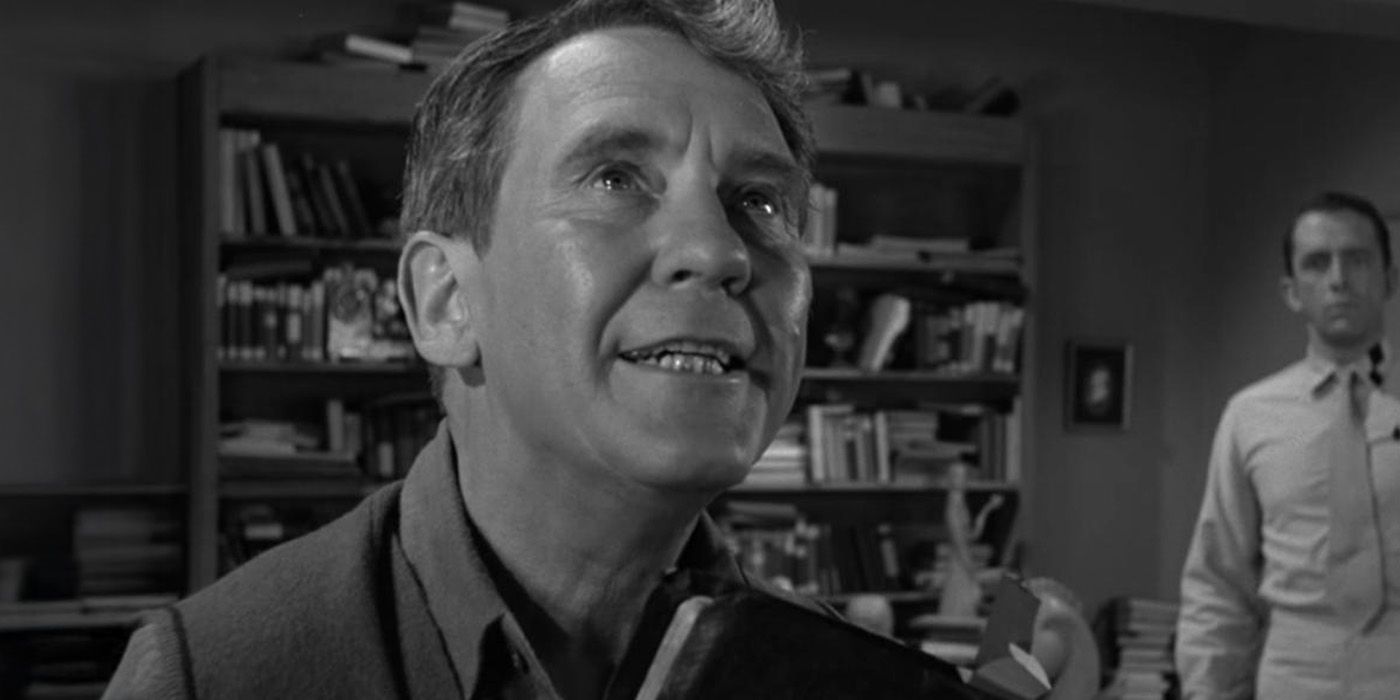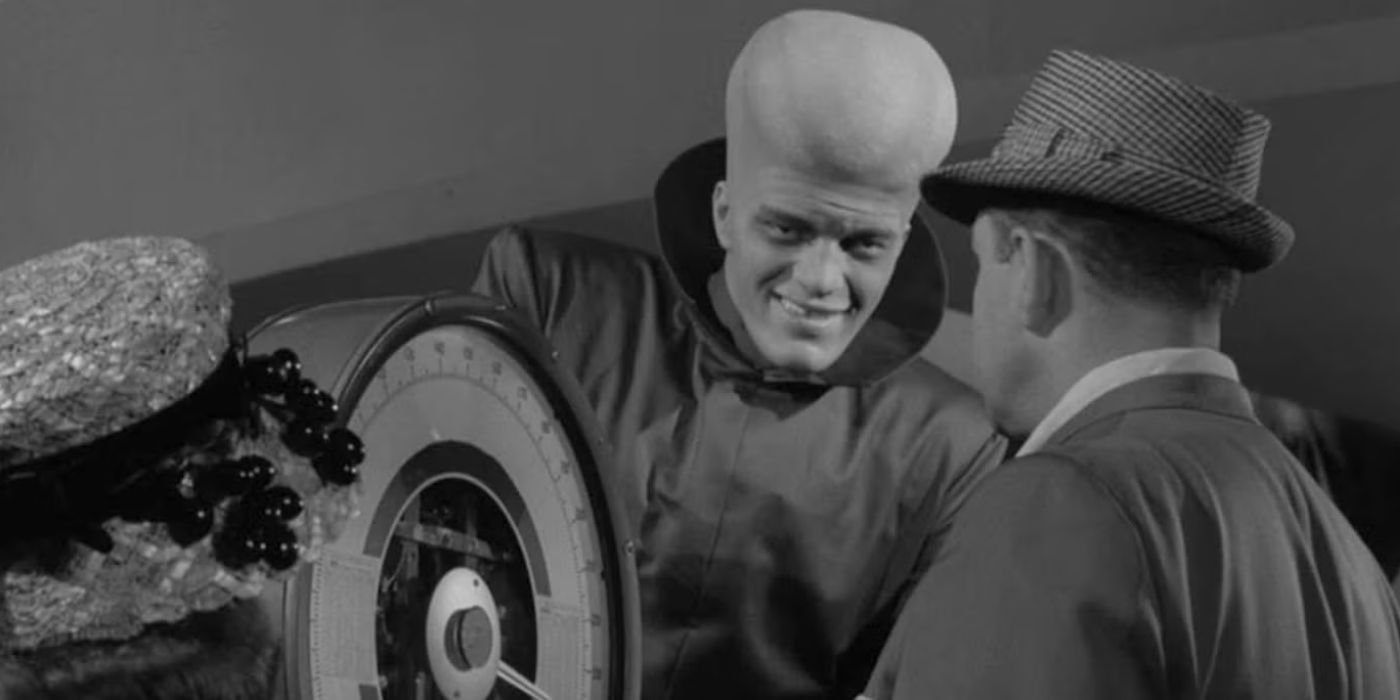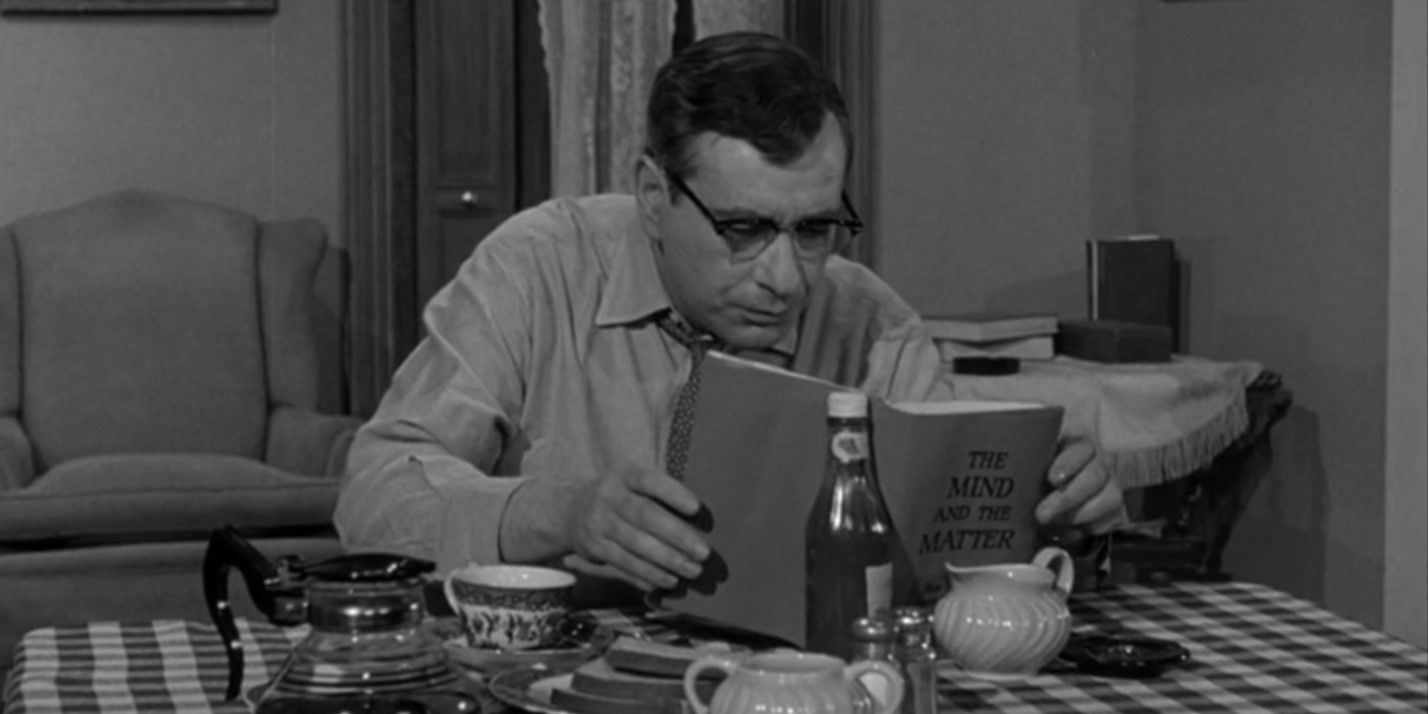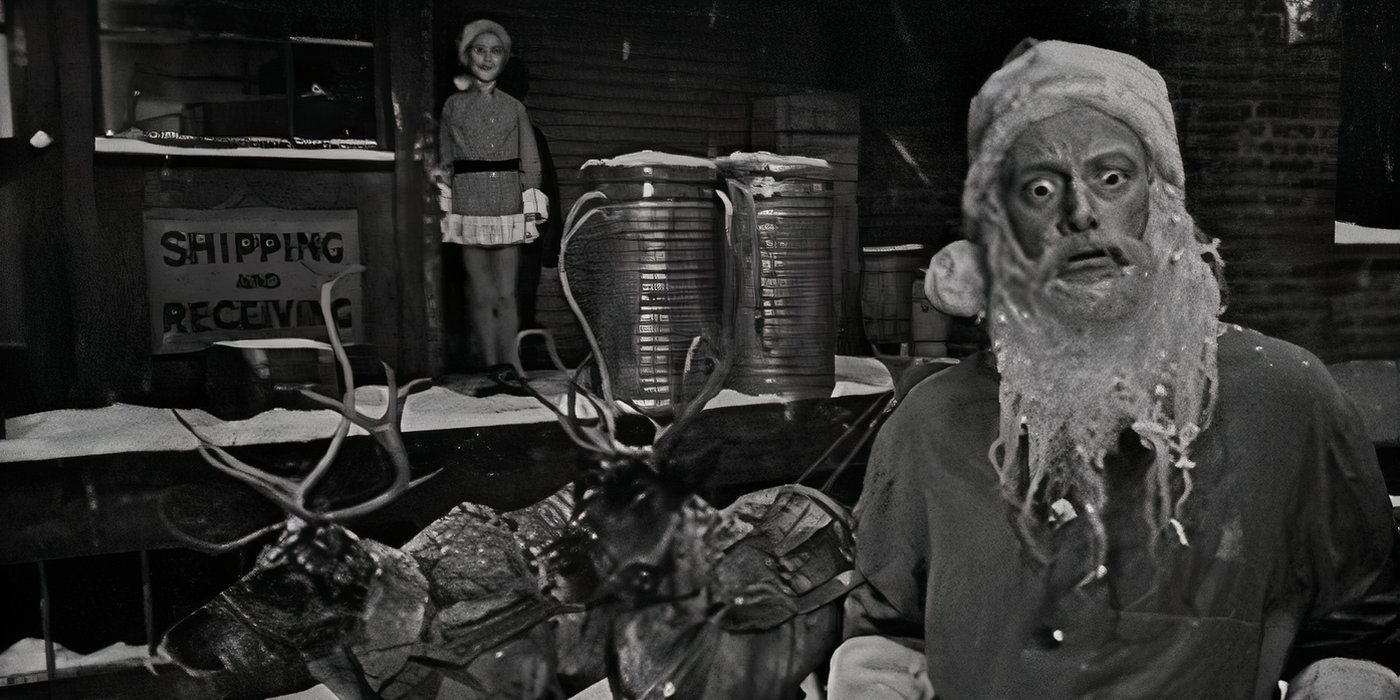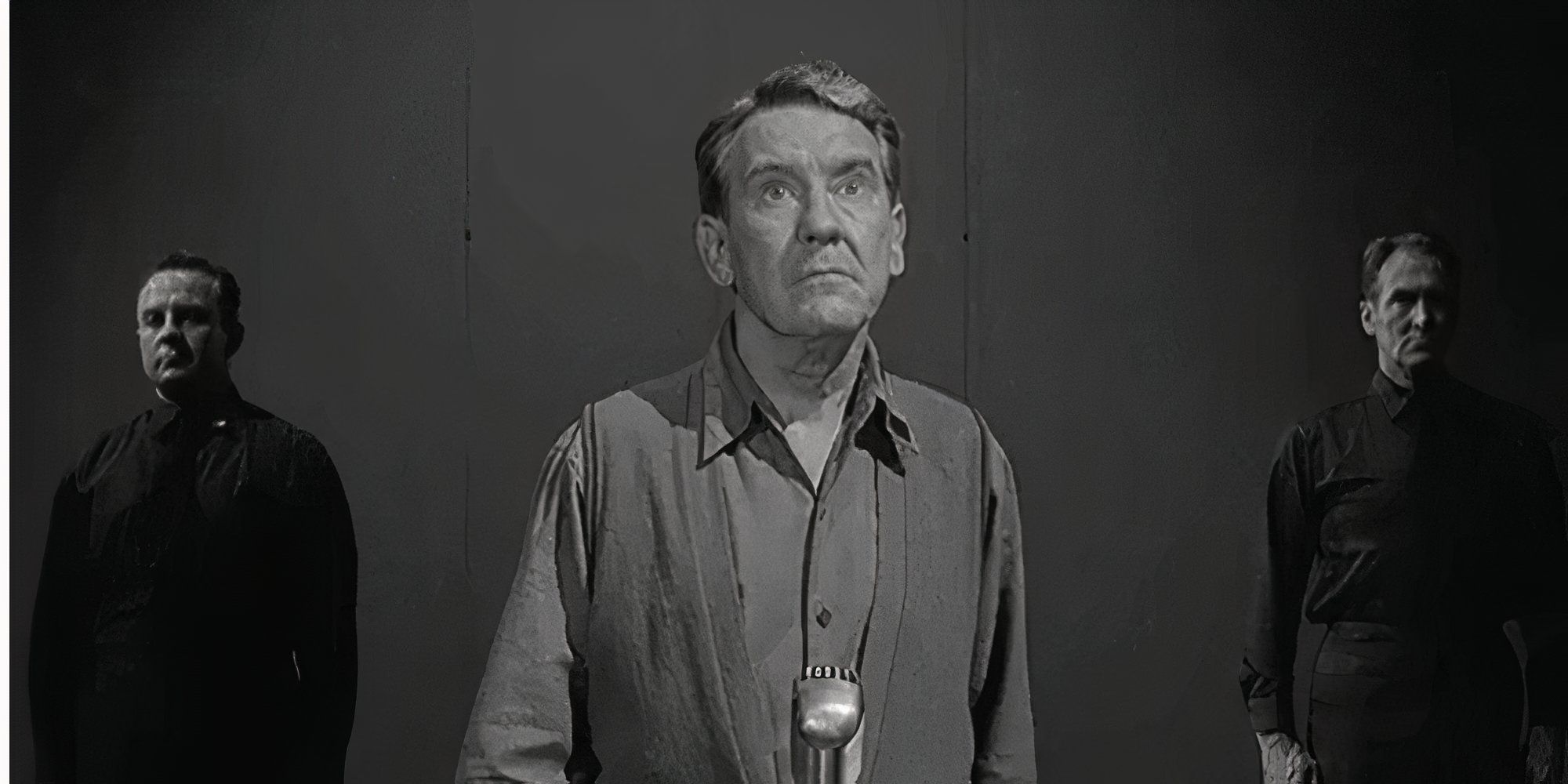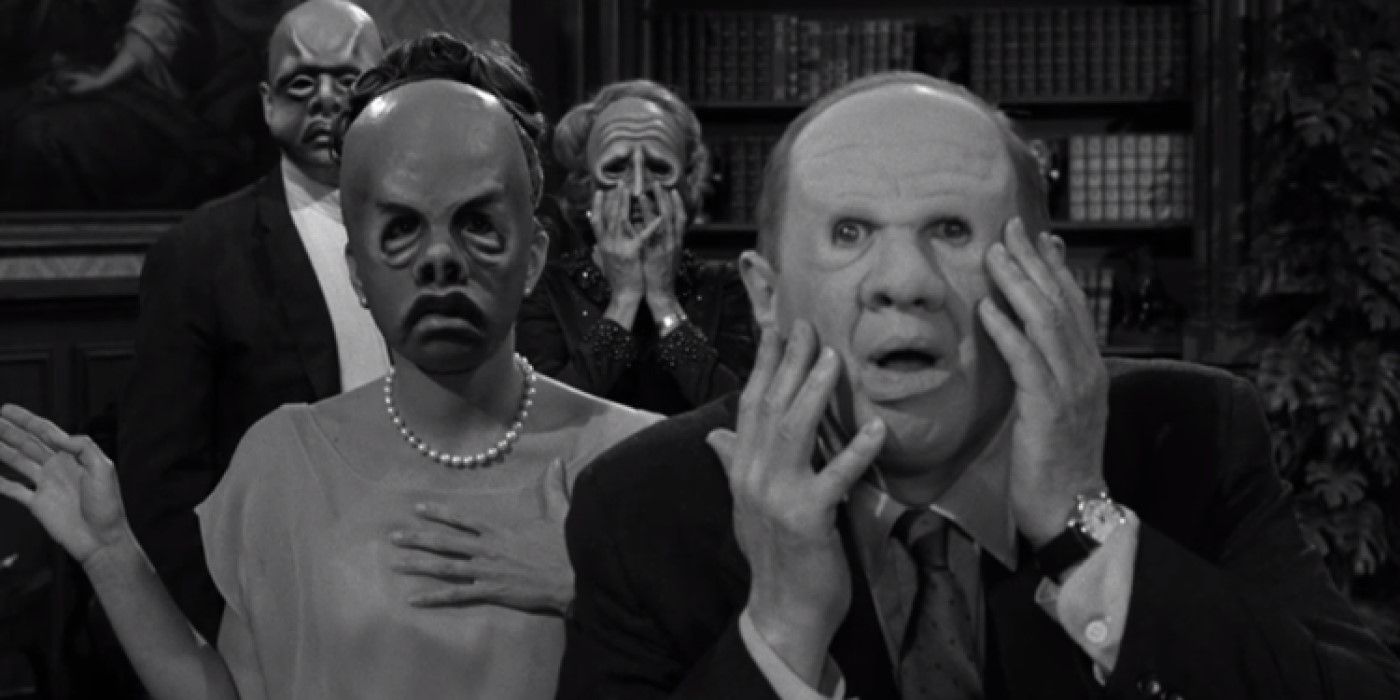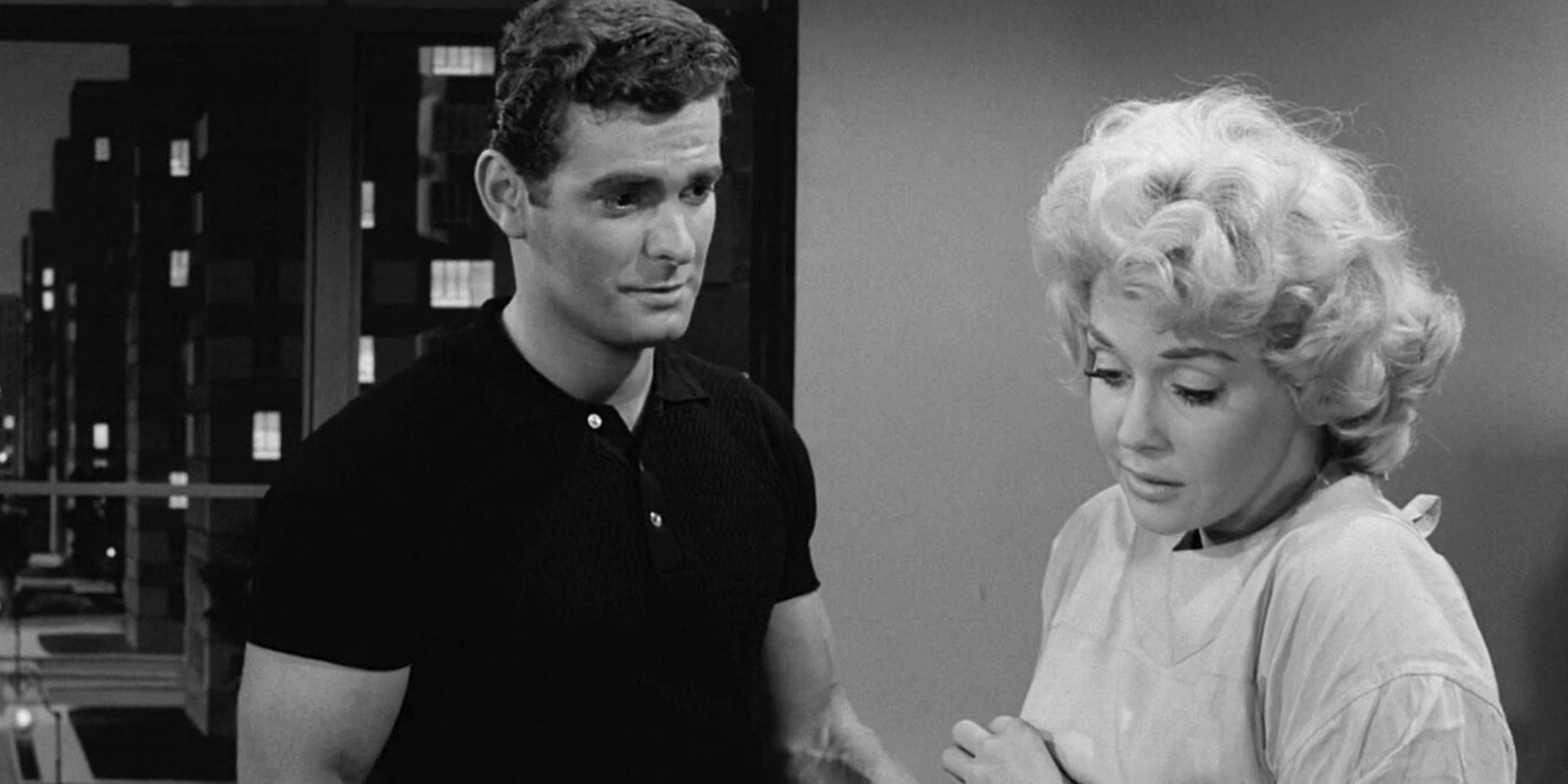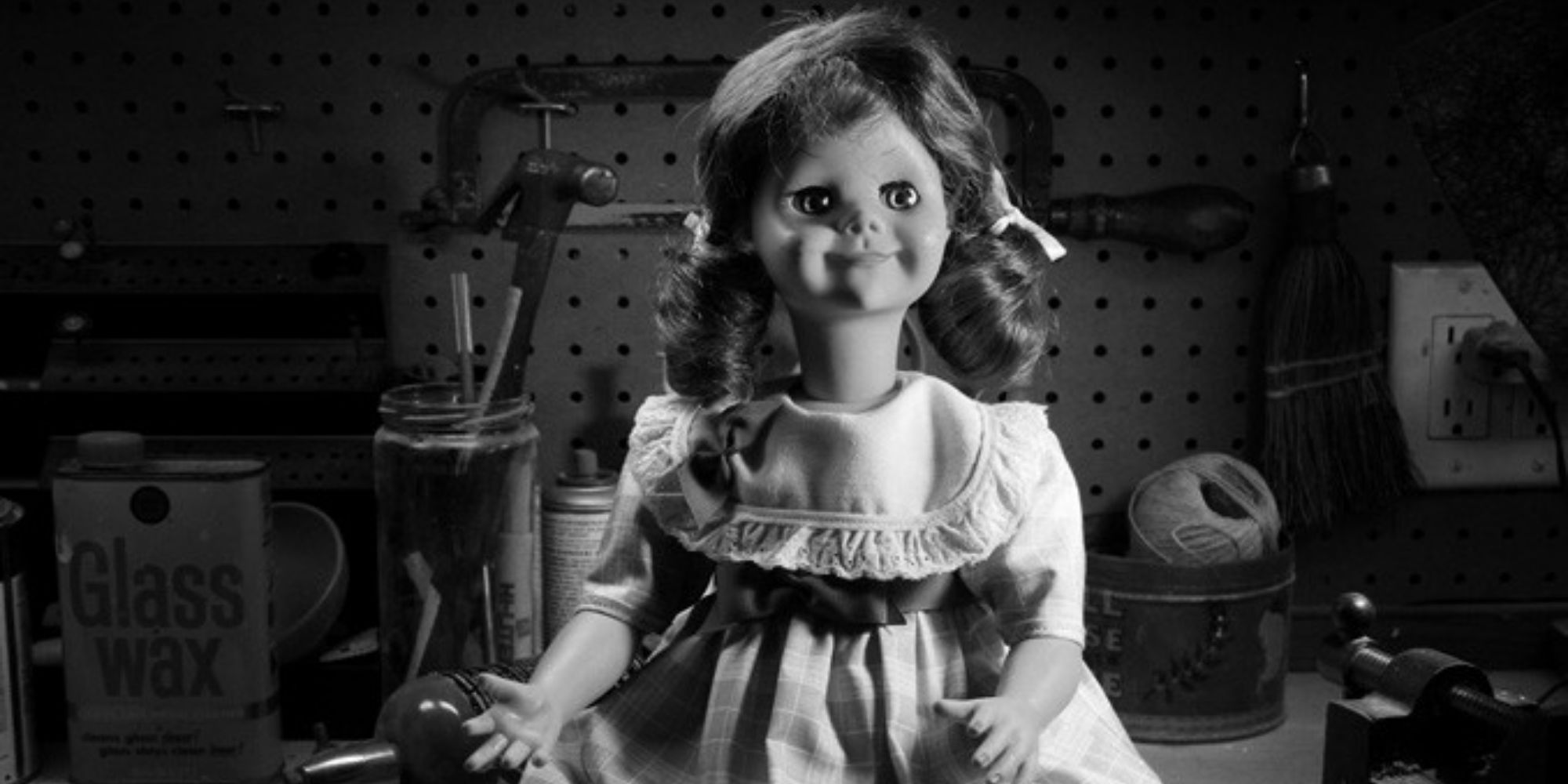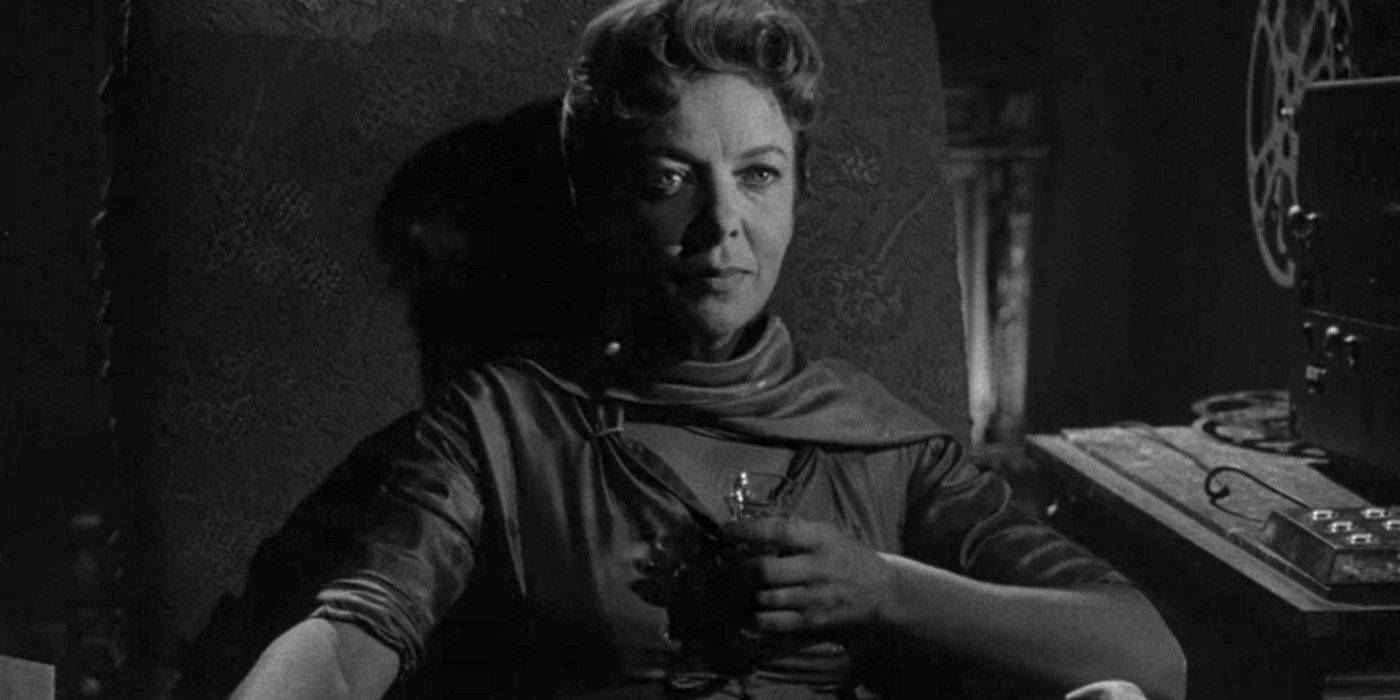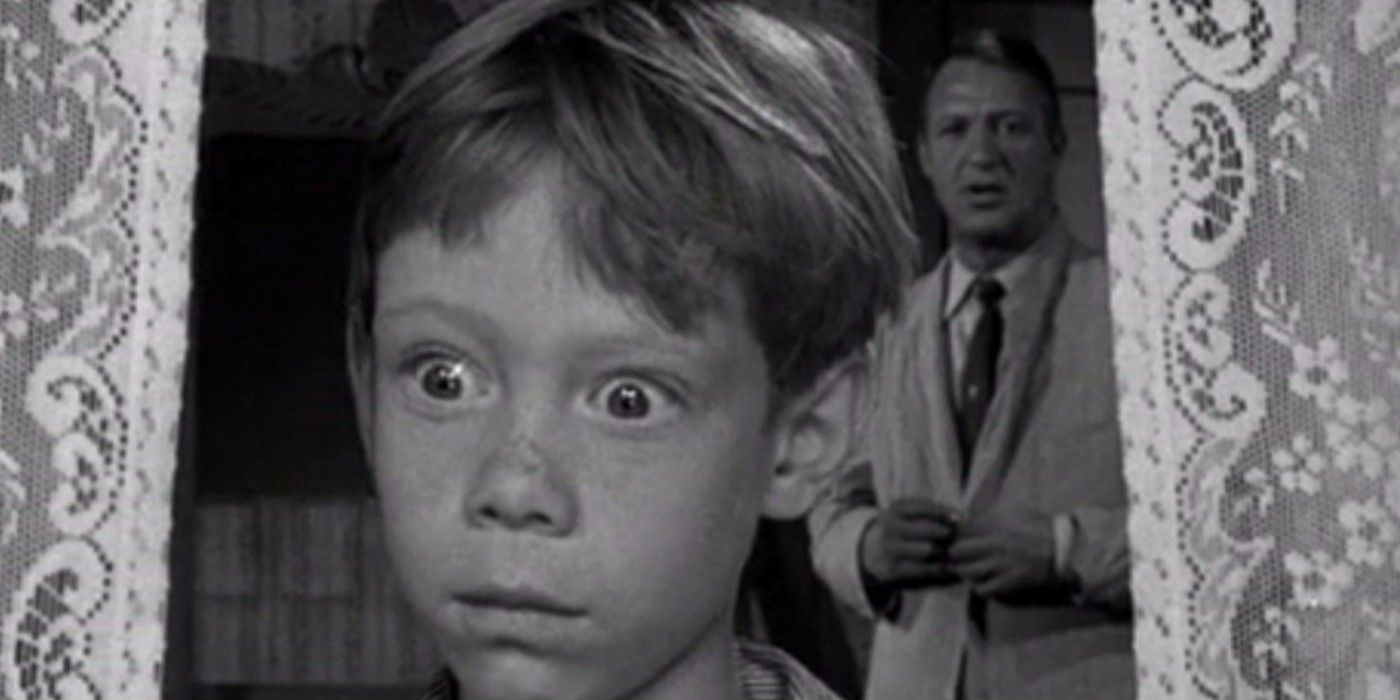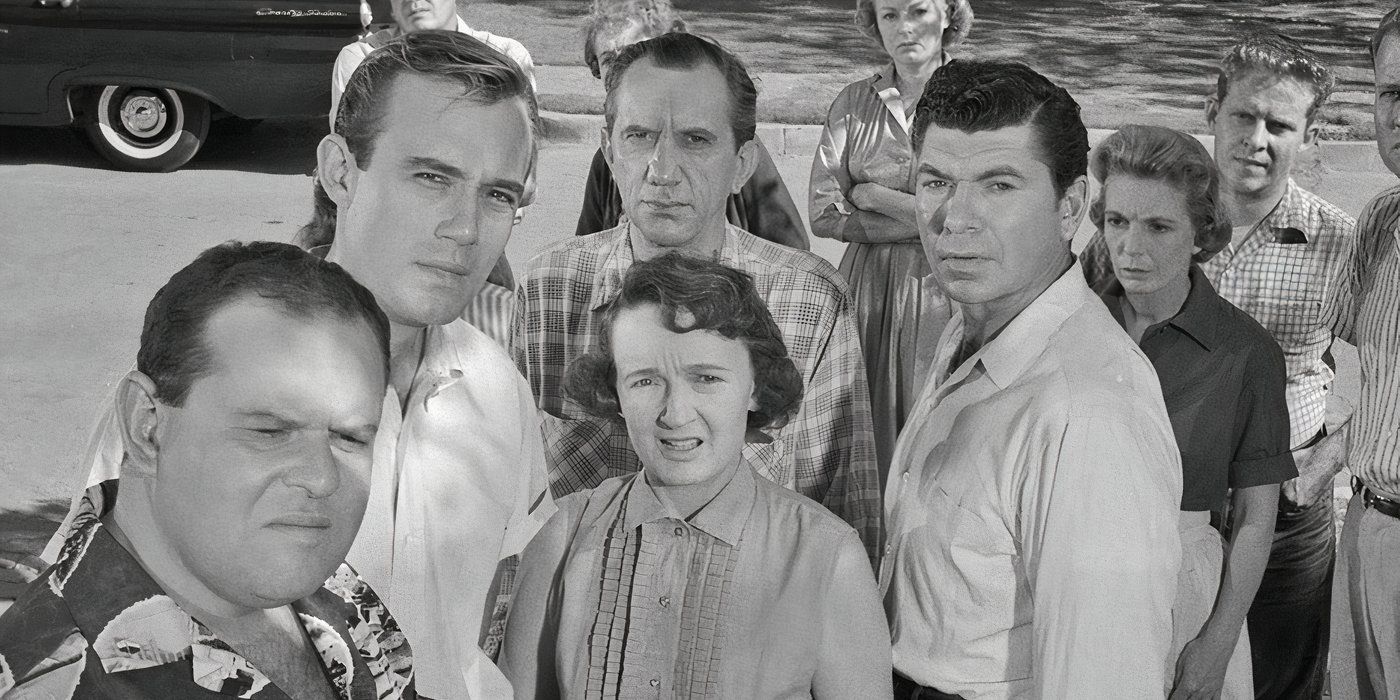The Twilight Zone is a legendary anthology series that the whole family can enjoy, at least depending on the episode. So long as the kids can handle darker concepts and some relatively convincing costumes and makeup, then they can tackle the original Zone. Of course, there’s also a structural reason for why the show can sometimes feel child-friendly: the morals at the end. Not like adults don’t need to be reminded of important and simple life lessons, too, but children’s shows do tend to have an explicit explanation of what a certain episode was about at the end. Another culturally significant (though much more recent) show to have this kind of structure would be Nickelodeon’s Avatar: The Last Airbender, which is more obviously aimed at kids, yet can very easily be enjoyed by adults.
Creator Rod Serling‘s iconic openings and closing monologues never fail to bookend each episode with style and class. The man had a way with words, to put it mildly. Though viewers could already gather from each story what it was about, Serling’s epilogues consistently lent a greater sense of weight and wisdom to everything. He made it look easy, too. Finding the ten best lessons learned in the entire 156 episodes is quite the task, but the following list can at least serve as an excellent primer for those who seek to find greater meaning in the original Twilight Zone. Like the choices, the rankings here will be pretty subjective, but the following lessons appear to have greater universality, strength of execution, and contemporary relevance than most of the other life lessons found in the series.
10
If Something Seems Too Good to Be True, It Is
“To Serve Man” (Season 3, Episode 24)
Great news! A superior alien race has landed on Earth, and they want to help! They manage to solve the staggering tasks of ending world hunger and bringing about world peace in short order. They’re so much smarter than us that they can communicate telepathically, and they have a language so complex that even professional code-breakers struggle to understand it. But one of their books is called “To Serve Man,” which is apparently about caring for people. They’re even inviting people to come back to their planet!
But is it possible they have an ulterior motive? Yes, it’s practically guaranteed. In fact, the human race should have been even more skeptical with every remarkable feat their guests achieved. Why do all of this for a distant planet? This may be a somewhat cynical lesson, but it applies to many a scenario: When something feels too good to be true, maybe take a step back and think it through a little. It might just be a ruse.
9
Accept and Appreciate the World for What It Is
“Mind and the Matter” (Season 2, Episode 27)
Archibald Beechcroft (Shelley Berman) hates people, apparently without exception. Instead of moving to the country or something, he just walks around irritated all day. That is, until his most annoying co-worker gives him a book that teaches him to concentrate so well that he can essentially make anything happen. Of course, a misanthrope like him uses it to make every person in the world disappear.
After that, the Twilight Zone episode gets a bit dull, which is probably the point. Mr. Beechcroft tries to relish in this emptiness, but he gets quite bored very quickly. There’s something missing. Changing the weather doesn’t help, and replacing everyone with just different versions of himself doesn’t, either. In the end, he brings everyone back and realizes he should be more appreciative of the world as it is. Or, as Rod Serling says, “with all its faults, it may well be that this is the best of all possible worlds. People notwithstanding, it has much to offer.” A lesson like that can apply to any time period, anywhere.
8
There’s Nothing Better than the Gift of Giving
“The Night of the Meek” (Season 2, Episode 11)
The moral of the episode isn’t always something the protagonist has to learn. Sometimes they already know it, and it’s other characters who have to wise up. This is precisely the case in season two’s absolutely charming Christmas episode, “The Night of the Meek.” Henry Corwin (Art Carney) is a terribly drunk mall Santa who wishes more than anything that he could help the lower-class children of his neighborhood get what they want for Christmas.
His boss, Mr. Dundee (John Fielder), fires him for being drunk on the job. Afterward, though, something miraculous happens: Mr. Corwin finds a sack in an alley that will contain whatever someone wants. So this mall Santa becomes a temporary, reindeer-less Santa—at which point a police officer arrests him for suspicion of theft. In the end, both the police officer and Mr. Dundee get drunk off cherry brandy and learn to appreciate the gift of giving. As for Mr. Corwin, he gets to be the actual Santa, which has got to be one of the best origin stories ever.
7
Reading is Integral to the Human Spirit
“The Obsolete Man” (Season 2, Episode 29)
Make libraries and librarians obsolete, and you shall face the wrath of people with imagination. That’s what happens when a totalitarian state in the Rod Serling-penned “The Obsolete Man” tells Mr. Wordswoth (Burgess Meredith) that he is to be killed. Interestingly, a government that likes to control everything gives this man the freedom to choose how they dies. Maybe that’s the unread person’s way of killing boredom.
And it totally backfires. The man in charge of Mr. Wordsworth’s death (played by Fritz Weaver) is tricked into a scenario in which he’ll have to die along with the condemned librarian. Since people (like ideas) are disposable here, the authorities don’t come to save him. He winds up making a fool and a coward of himself on TV, which leads to a different kind of demise. This episode emphasizes the strengths that come with religion, books, and political freedom, but for the purposes of this list, we can condense all of those values to the freedom of expression.
6
Greed is Ugly
“The Masks” (Season 5, Episode 25)
Jason Foster (Robert Keith) is at death’s door, but he has unfinished business to attend to first. His daughter and her family visit him on Mardi Gras, and he has assigned each one of them a mask that fits their personalities. For his son-in-law, greed; for his daughter, cowardice; for his granddaughter, vanity and pride; and for his grandson, stupidity (he also has a history of cruelty). In short, though they each have specific vices, none of these people responds to love.
In order to inherit the old man’s vast fortune, each member of the family has to wear their assigned mask for a few uncomfortable hours. It’s a terrific plot twist when they finally take their masks off and reveal that their faces have been permanently altered into frightening visages. Now what’s on the inside is on the outside, too, a wonderful way of illustrating how greed and a toxic soul in general eats you from the inside out. To make things even cooler, Mr. Foster’s mask illustrated death; and since he dies, his face remains the same. His virtue survived one of The Twilight Zone‘s most famous episodes.
5
Beauty is in the Eye of the Beholder
“Eye of the Beholder” (Season 2, Episode 6)
Season two’s “Eye of the Beholder” features perhaps the greatest character in The Twilight Zone: Janet Tyler. Played by Maxine Stuart when bandaged and Donna Douglas once her face is exposed, Ms. Tyler has had so many procedures to reconstruct her face that the doctors have informed her that this is the final attempt. She just wants to fit in and look normal, something that her apparently horrendous visage prevents.
Once we see her face, which is very attractive to most people in our world, we also see that the “normal” of this society is quite deformed and repellent to us. Hence, the title of the episode, which uses an extreme example to have us reflect on beauty standards. All this takes place in a society where those who don’t look a certain way are segregated to another location, which adds the obvious theme of conformity to the mix as well. However, since going away to another place is played as a somewhat happy ending, it seems the lesson about how beauty is subjective packs a bigger punch.
4
Be Nice to Your Family
“Living Doll” (Season 5, Episode 6)
Of all the objects in the world to make a fuss over, Erich (Telly Savalas) goes after his innocent stepdaughter’s new doll. That’s not cool, and it comes with significant consequences. He insists to his wife and her little girl that the toy is too expensive, and does everything from telling them that it should be returned to trying to throw it away. As he does so, however, he is given warnings that Talky Tina might be alive (and very angry).
There wouldn’t have been any trouble if he had just let this lonely little girl have a companion to love. Imagine if he were, God forbid, actually kind to the people he chose to live under the same roof with—maybe his stepdaughter wouldn’t have any need for a doll in the first place. But, of course, this guy takes an aggressive stance, and he’s given an even more aggressive response from this doll. His fate is sealed by his sour behavior, hitting home a simple code of ethics: treat others as you would like to be treated.
3
Don’t Live in the Past
“The Sixteen Millimeter Shrine” (Season 1, Episode 4)
Sunset Boulevard is a fantastic film noir that still holds up today, and The Twilight Zone‘s fourth episode borrows pretty heavily from that film’s central conceit. In “The Sixteen Millimeter Shrine,” Barbara Jean Trenton (Ida Lupino) is very much like Gloria Swanson‘s iconic character: she lives like a hermit in her old mansion, desperately reliving her glory days as a Hollywood actor by watching her old films. That was decades ago, and yet she’s too proud to take smaller roles or roles for older women.
Of course, Sunset Boulevard was a feature-length noir and The Twilight Zone ventures into more speculative fare—so the ending is different here. At least, it is on a literal level; the main lesson is essentially the same: You can’t live in the past. Intriguingly, though, there is another lesson that applies much more today than it did back in the late 50s: Don’t live vicariously through the screen. Combined, these are two ways to guarantee your misery and severely worry those around you.
2
Absolute Power in the Wrong Hands is Disastrous
“It’s a Good Life” (Season 3, Episode 8)
Some people are elected to power, others take it, and people like the little menace from season three’s “It’s a Good Life” are simply born with it. Anthony Fremont (Billy Mumy) essentially has the power to do whatever he wants to whomever he wants through the power of telepathy. He can read minds, as well, which means that everyone close to him needs to be extremely careful about what they think. And those thoughts better be positive.
For those who haven’t watched this one, it’s almost as if there’s an extremely powerful Sith in the form of a spoiled child, and with no Jedi or other Force users around to combat him. Of course, there is a political element to this—connecting to people throughout history who went mad with power. But this can be applied to less extreme examples as well; basically, any situation where someone unfit to make important decisions for others gets to make practically all of them. In short, the ability to dominate others without recourse can make for an absolutely despicable human being.
1
When You Assume, You Make an A** out of You and Me
“The Monsters are Due on Maple Street” (Season 1, Episode 22)
Every single person on Maple Street in one of the Zone‘s greatest entries is absolutely baffled by the suddenly erratic behavior of their technology. Nothing’s working, except for the occasional device that is for some reason. First it’s some poor insomniac’s car, which confuses him just as much as everybody else. But most of them immediately assume that he must be responsible for the rest of the outage. Tensions escalate so quickly that, by the evening, an innocent man is senselessly killed by one of the more paranoid neighbors.
The episode emphasizes how these neighbors try to point fingers based on others’ eccentricities. You look up at the stars at night, you’re a freak. You have a radio hobby, you’re talking to aliens. The moral of this story can both include and transcend the differences that people typically use to separate themselves from each other (race, color, creed, ethnicity, politics). It digs all the way to a person’s core, down to their personality and behavioral differences—serving as a profound expression of how prejudice is poison. In the end, this may be the most universal and important lesson in The Twilight Zone.

